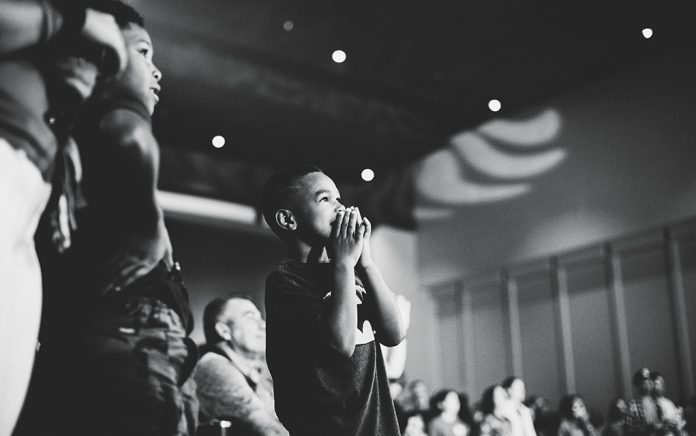What’s Franklin Heights’ big-picture retention strategy?
This will probably sound like a regular preacher answer, but we start with the gospel. It’s the foundation of what we do, and we’re very careful to make sure we keep that priority. We believe the gospel meets people where they are, and that is a key part of the strategy.
Flowing out of that, we believe the Great Commission is what we’re called to do. So, if you ask the average person at Franklin Heights what their church is all about, I believe they would tell you that we are a sent church. And that means we love our neighbors, our community and the nations. How do we do that? We believe if we provide quality opportunities for people to serve, then through their serving they will connect.
We’re very intentional about providing quality opportunities for people to serve and to make a difference in our community. Through that we have a lot of success in getting new people connected to the life of the church.
Why does serving seem to work?
Because people really want to make a difference, want to feel like their life has purpose and meaning. I think that God creates us with that desire. And I think as our culture becomes more and more broken, people are searching for answers in life. One way they find some answers about why they’re here is through serving and making a difference.
And I’m seeing a change in the younger crowd. They’re not as caught up in themselves and making money. They want to impact people’s lives, and I can’t think of a better place to do that than through the church. It’s our responsibility to provide those opportunities, and through those, the gospel is shared and lives are changed.
Where do people start serving at your church?
Short-term or one-time opportunities to serve are the doorway to getting people connected. For example, we just had a free market where we partnered with local organizations. We identified people who were having a challenging time in life and then invited them to come. We had over 700 people here. That was one event for a week that gave people a chance to come help. We also have our community gardens where people can come and serve for maybe one day a week in the summer. They don’t have to make a long-term commitment. And this type of serving develops relationships in our church, but also in the community, which is really important to us and our mission.
What’s one of your biggest challenges in getting people to connect?
Rocky Mount is a little tiny town—about 4,900 people—south of Roanoke, Virginia. We’re a dairy farming county out in the country, and I think in the last five years, we’ve had less than 2% growth in our community. We’re a settled community. We’re dealing with the same people week after week, so you have to be really intentional about loving your community.
People here know that we love them, care about them, and that we’re going to help meet their needs. In a small community, if you damage your testimony in some way, well, that’s going to be it. We’re very strategic about helping solve problems and loving our community. At the same time, living in a small town is helpful because people know who we are, and we can develop long relationships.
What are some of those relationships?
We partner with the local sheriff, and every Sunday morning in our 11 a.m. service at one of our campuses, we have between 20 and 30 inmates—we call them trustees—from the local jail. We minister to them and their families, and then we connect with them during the week through Bible studies and service projects in the area. Then, when they get out of jail, we try to help them find housing and jobs so that they can be productive in our community.
We also really work hard to develop relationships with our schools. We want to meet whatever needs they have. The schools have identified about 75 students who will not be able to eat unless a meal is provided. So, on a weekly basis we provide those kids with food for the evenings and weekends. And at the beginning of every school year, we have a team of people who go one night to the front doors of every school—elementary, middle school, high school, private school—and pray for them. The teachers see us. The administration sees us. They know who we are.
There are a lot of good people here who want to serve, and have a heart for the gospel and our community. It’s a privilege to be a part of it. God’s doing a neat thing here.

